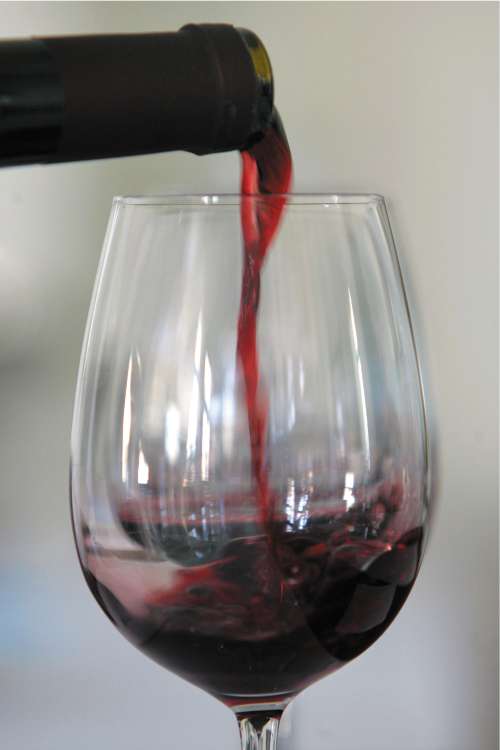Drink red wine for a better life – but not a longer one

Your support helps us to tell the story
From reproductive rights to climate change to Big Tech, The Independent is on the ground when the story is developing. Whether it's investigating the financials of Elon Musk's pro-Trump PAC or producing our latest documentary, 'The A Word', which shines a light on the American women fighting for reproductive rights, we know how important it is to parse out the facts from the messaging.
At such a critical moment in US history, we need reporters on the ground. Your donation allows us to keep sending journalists to speak to both sides of the story.
The Independent is trusted by Americans across the entire political spectrum. And unlike many other quality news outlets, we choose not to lock Americans out of our reporting and analysis with paywalls. We believe quality journalism should be available to everyone, paid for by those who can afford it.
Your support makes all the difference.The secrets of a healthy life may lie at the bottom of a glass of red wine – but scientists have warned that such a life may not necessarily be a long one.
A study has shown that a substance found in the skin of red grapes has anti-ageing properties that protect the heart, bones and eyes from the ravages of old age.
Resveratrol, an organic compound found in grapes, nuts and a variety of other plant foods, significantly slows down the rate of ageing in laboratory mice when given in large enough doses over a long period, although it did not actually prolong their lives.
However, the study did not show that resveratrol actually extends life, only that it improves the quality of life, said Rafael de Cabo of the US National Institute of Ageing, who took part in the study published in the journal Cell Metabolism.
A major finding was that resveratrol appears to counteract the changes to the heart and cardiovascular system associated with ageing and obesity, as well as boosting the density and mineral content of bone, which could help to combat the onset of osteoporosis.
Mice fed resveratrol were also less likely to develop cataracts in their eyes compared with mice that were not given the dietary supplement. The scientists also found resveratrol stimulated the same genes that appear to be involved in extending a mouse's life when living on a calorie-restricted diet.
"From a health point of view, the quality of life of these mice at the end of their days is much better. It suggests that resveratrol may extend productive, independent life, rather than just extending life span," Dr de Cabo said. "We found that while quality of life improved with resveratrol, the compound did not significantly affect overall survival or maximum lifespan."
The scientists believe resveratrol works by mimicking the effects of a calorie-restricted diet, which is known from animal studies to prolong life and stimulate anti-ageing mechanisms in the body, which help to prevent tissues from being damaged or degraded through wear and tear.
Previous research has indicated that resveratrol has important health benefits but scientists are sceptical that red wine contains enough of it to be beneficial. Instead, they are working on the idea that a purified form could be given as a dietary supplement.
"I was most surprised by how broad the effects were in the mice. Usually, you focus on slowing down or ameliorating one disease at a time. In this case, resveratrol influences a whole series of seemingly unrelated diseases associated with ageing," said David Sinclair of Harvard Medical School.
"We are learning a great deal about how resveratrol affects the health and survival of mammals. Continued study may eventually point the way to new medicines to treat diseases of ageing," he said.
Resveratrol has already been shown to extend the lives of yeast, worms, flies and fish, as well as improving the health and chances of survival of obese mice fed a high-calorie diet. The scientists believe that if it has a similar effect on humans it could be an important weapon in the fight against heart disease, osteoporosis and other ailments associated with ageing.
Join our commenting forum
Join thought-provoking conversations, follow other Independent readers and see their replies
Comments